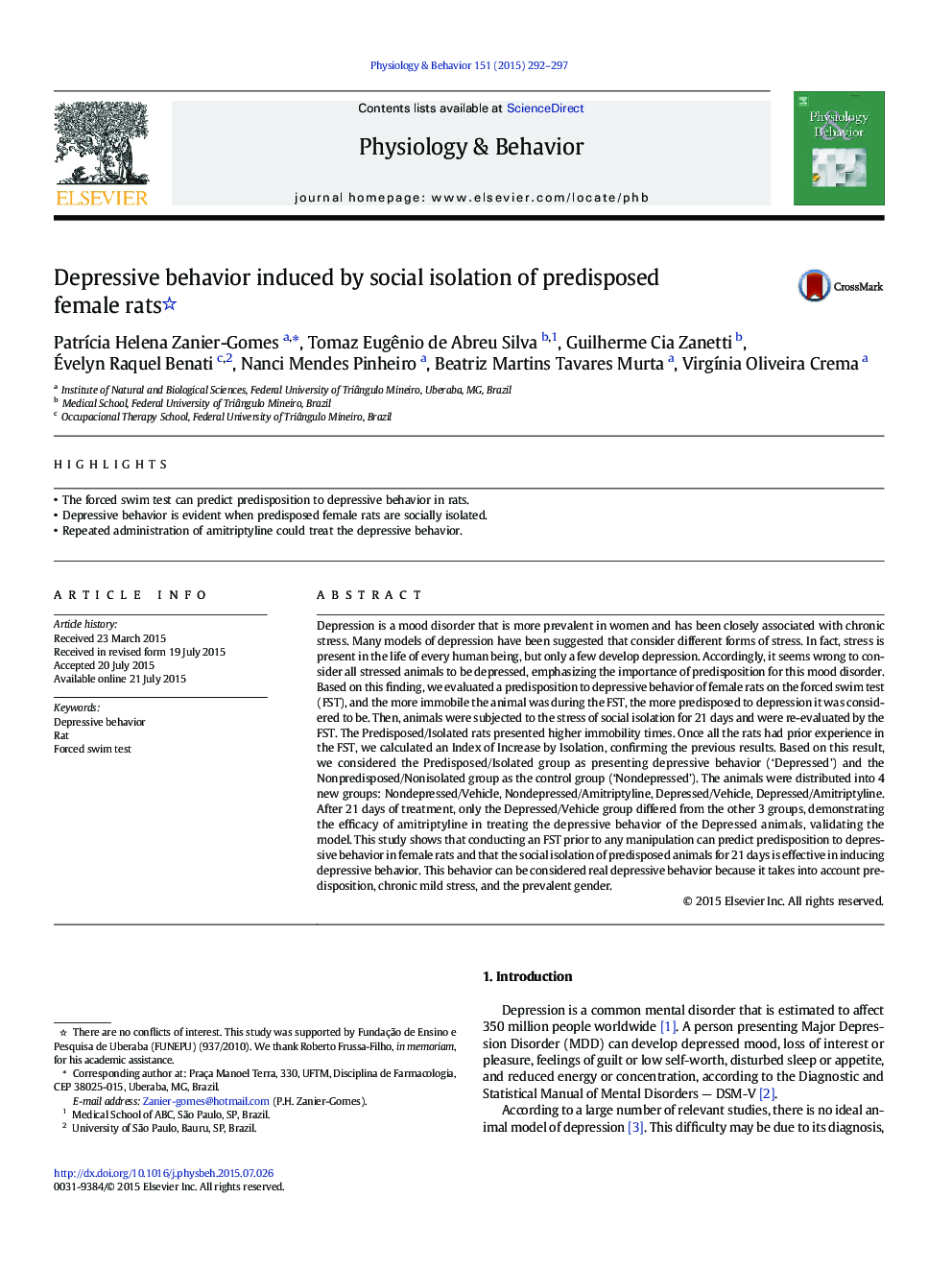| Article ID | Journal | Published Year | Pages | File Type |
|---|---|---|---|---|
| 5923284 | Physiology & Behavior | 2015 | 6 Pages |
â¢The forced swim test can predict predisposition to depressive behavior in rats.â¢Depressive behavior is evident when predisposed female rats are socially isolated.â¢Repeated administration of amitriptyline could treat the depressive behavior.
Depression is a mood disorder that is more prevalent in women and has been closely associated with chronic stress. Many models of depression have been suggested that consider different forms of stress. In fact, stress is present in the life of every human being, but only a few develop depression. Accordingly, it seems wrong to consider all stressed animals to be depressed, emphasizing the importance of predisposition for this mood disorder. Based on this finding, we evaluated a predisposition to depressive behavior of female rats on the forced swim test (FST), and the more immobile the animal was during the FST, the more predisposed to depression it was considered to be. Then, animals were subjected to the stress of social isolation for 21Â days and were re-evaluated by the FST. The Predisposed/Isolated rats presented higher immobility times. Once all the rats had prior experience in the FST, we calculated an Index of Increase by Isolation, confirming the previous results. Based on this result, we considered the Predisposed/Isolated group as presenting depressive behavior ('Depressed') and the Nonpredisposed/Nonisolated group as the control group ('Nondepressed'). The animals were distributed into 4 new groups: Nondepressed/Vehicle, Nondepressed/Amitriptyline, Depressed/Vehicle, Depressed/Amitriptyline. After 21Â days of treatment, only the Depressed/Vehicle group differed from the other 3 groups, demonstrating the efficacy of amitriptyline in treating the depressive behavior of the Depressed animals, validating the model. This study shows that conducting an FST prior to any manipulation can predict predisposition to depressive behavior in female rats and that the social isolation of predisposed animals for 21Â days is effective in inducing depressive behavior. This behavior can be considered real depressive behavior because it takes into account predisposition, chronic mild stress, and the prevalent gender.
